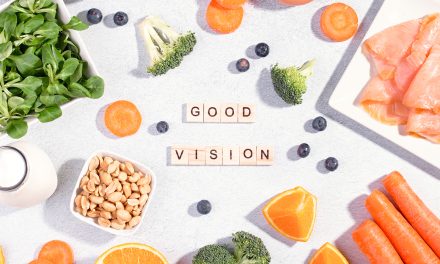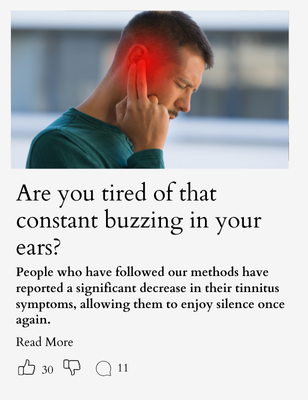Maintaining good vision is essential for our quality of life, and diet plays a significant role in eye health. Certain vitamins and minerals are known to help protect the eyes from age-related conditions and can aid in maintaining vision clarity. Lutein and zeaxanthin, for example, are two carotenoids highly concentrated in the macula, the part of the eye responsible for central vision. These nutrients have been linked to the prevention and slowing of cataracts and age-related macular degeneration by filtering out harmful radiation from sunlight.

Beyond these carotenoids, other essential nutrients for eye health include Vitamin A, which is vital for maintaining night vision and overall eye function, and Vitamin E, which contributes to eye health by fighting off free radicals that can harm tissues, including those in the eye. Omega-3 fatty acids are also important, especially DHA, which is found in high concentrations in the retina and is thought to play a role in maintaining retina health. Ensuring an adequate intake of these nutrients, either through diet or supplements, is an important part of preserving vision.
Key Takeaways
- Diet impacts eye health, with certain nutrients like lutein and zeaxanthin being particularly beneficial.
- Vitamins A and E, along with Omega-3 fatty acids, play crucial roles in maintaining good vision.
- Adequate nutrient intake can be achieved through diet and may be supplemented to support eye health.
Understanding Eye Health and Nutrition
Nutrition plays a critical role in maintaining eye health, with specific nutrients having a direct impact on vision support and overall eye function. A balanced diet rich in fruits and vegetables is essential for providing these key nutrients.
Role of Nutrients in Vision Support
Certain nutrients are vital for preserving eyesight and preventing eye conditions. Vitamin A is paramount for good vision; it is a component of rhodopsin, a protein in the eyes that allows one to see in low light conditions. Deficiencies in vitamin A can lead to night blindness and other eye health issues. Carotenoids like lutein and zeaxanthin are concentrated in the macula, an area of the retina responsible for central vision. They filter harmful high-energy blue wavelengths of light and help protect and maintain healthy cells in the eyes. The Mayo Clinic notes the significance of these carotenoids in vision health, especially concerning macula degeneration.
Omega-3 fatty acids, found in fish, are linked to eye health, supporting retinal function and reducing the risk of age-related macular degeneration. Similarly, antioxidants like vitamin C and vitamin E play a role in eye health. Antioxidants help combat oxidative stress that can damage the retina over time.
Diet and Eye Function
The relationship between diet and eye function is undeniable. A diet lacking in essential vitamins and nutrients can lead to poor eye health and vision problems. Conversely, a diet that includes a variety of fruits and vegetables can provide a wealth of nutrients beneficial for eye health. Dark, leafy greens such as kale and spinach are packed with lutein and zeaxanthin, while citrus fruits and berries offer high levels of vitamin C.
Maintaining a balanced diet that includes omega-3-rich fish, lean meats, nuts, and legumes, along with a colorful assortment of fruits and vegetables, can support eye health and function. According to the American Academy of Ophthalmology, it’s important to recognize that while nutrition is essential for maintaining eye health, it is not a standalone cure for eye disease. It is one aspect of a holistic approach to maintaining overall well-being for the eyes.
Key Nutrients for Eye Health
Maintaining eye health is critical, and certain nutrients play vital roles in preserving vision. These include antioxidants that protect against cellular damage, vitamins that are essential for maintaining eye function, and minerals that support the overall structure and health of the eyes.
Antioxidants and Eye Protection
Antioxidants are molecules that combat oxidative stress, a process that can damage eye cells. Two key antioxidants for eye health are:
- Lutein and Zeaxanthin: These carotenoids are found in high concentrations in the macula, a part of the retina responsible for central vision. They filter harmful high-energy blue wavelengths of light and help protect and maintain healthy cells in the eyes.
- Vitamin C: Often found in fruits and vegetables, vitamin C contributes to healthy blood vessels in your eyes. It combats free radicals, supports the health of ocular tissues, and can reduce the risk of cataract formation.
Vitamins Essential for Vision
Vitamins play a foundational role in eye health. The following are crucial:
- Vitamin A: Essential for good vision, vitamin A helps with the function of the retina and is critical for night vision and color vision. A deficiency in this nutrient can lead to a condition known as xerophthalmia, which can cause night blindness and dry eyes.
- Vitamin E: An antioxidant that protects the eyes from free radicals which break down healthy tissue. Adequate vitamin E can help reduce the risk of age-related macular degeneration (AMD) and cataract formation.
Minerals and Eye Maintenance
Minerals are inorganic elements that support the structural integrity and function of the eye. They include:
- Zinc: This trace mineral helps bring vitamin A from the liver to the retina to produce melanin, a protective pigment in the eyes. Zinc is found in high concentrations in the eye and may help prevent AMD.
- Omega-3 Fatty Acids: Although not a mineral, omega-3s are crucial for cell membrane health and may help prevent AMD and dry eye syndrome. They are found in high amounts in the retina and are critical for retinal function.
Supplements for Vision Enhancement
Select supplements and multivitamins may support eye health and enhance vision. Understanding which nutrients benefit eye health can guide individuals in selecting effective products.
Multivitamins and Eye Health
Multivitamins often contain essential vitamins and minerals that are vital for overall health, including eye health. They may supply vitamins C and E, both of which are antioxidants that protect the eyes from damage caused by free radicals. Furthermore, Omega-3 fatty acids, found in fish oil supplements, are known for their anti-inflammatory properties and may reduce the risk of age-related macular degeneration and dry eye syndrome.
- Vitamin C: Important for the health of blood vessels in the eyes; may lower the risk of cataract formation.
- Vitamin E: Protects cells of the eyes from damage by free radicals.
Incorporating a daily multivitamin that delivers a broad range of nutrients might contribute to maintaining the eyes’ overall health.
Specialized Vision Supplements
Specialized vision supplements target eye health more directly by providing specific nutrients that may not be as common in regular multivitamins. Some of these specialized nutrients include:
- Lutein and Zeaxanthin: These carotenoids, found in high concentrations in the macula, act as blue light filters and antioxidants, potentially reducing the risk of chronic eye diseases.
- Gamma-linolenic acid (GLA): An omega-6 fatty acid, often sourced from evening primrose oil or borage oil, that may help alleviate symptoms of dry eye.
Studies, such as those shown on Mayo Clinic Press, indicate that combining these nutrients might improve visual acuity and slow the progression of age-related macular degeneration. Individuals should consult healthcare professionals before initiating any supplementation, especially if they have existing health concerns or are taking other medications.
Addressing Age-Related Eye Concerns
As individuals age, the risk of developing eye conditions such as age-related macular degeneration (AMD) increases. Specific supplements have been identified that may help slow the progression of AMD and support overall retina health.
Preventing Macular Degeneration
Research, including the findings from the Age-Related Eye Disease Studies (AREDS and AREDS2), has highlighted the potential of certain supplements in reducing the risk of progression in individuals with intermediate to late AMD. The AREDS2 formula, which includes:
- Vitamin C
- Vitamin E
- Lutein
- Zeaxanthin
- Zinc
- Copper
This combination has been shown to be beneficial.
Moreover, adding nutrients like lutein and zeaxanthin may further help in preventing macular degeneration.
Supporting Retina Health in Aging
Age-related changes in the retina, specifically the macula, can compromise visual acuity. To support retina health in aging, the inclusion of omega-3 fatty acids, found in dietary supplements, can be beneficial. Omega-3s are essential fats that play a crucial role in cell health within the retina.
Furthermore, it’s recommended for individuals to consider a balanced diet rich in carotenoids, antioxidants, and healthy fats to complement these supplements for optimal retinal support. Maintaining regular eye examinations with a healthcare professional can guide personalized recommendations.
Foods Rich in Vision-Supporting Compounds
A diet rich in specific nutrients can help maintain and improve eye health. Certain vegetables, seafood, nuts, and seeds contain compounds that are particularly beneficial for vision.
Carotenoid-Rich Vegetables
Carotenoids, such as lutein and zeaxanthin, are powerful antioxidants found in high concentrations within the retina. Vegetables like spinach, kale, and corn are excellent sources. Studies suggest that these carotenoids help filter harmful blue light and act as a natural sunscreen for the eyes. The Harvard Health Publication details how dietary intake of these compounds can improve pigment density in the macula, which is crucial for protecting vision.
- Leafy green vegetables: Options such as spinach, kale, and collard greens provide a wealth of nutrients, including lutein and zeaxanthin.
- Colored vegetables: Carrots and corn also contribute to the intake of vital carotenoids that support eye health.
Omega-3 Packed Seafood
Seafood, especially salmon and tuna, is rich in omega-3 fatty acids, which are essential for maintaining eye health. Omega-3s are known to contribute to visual development and the health of the retina. Eating seafood can support the structural integrity of the eye and potentially reduce the risk of age-related vision issues.
- Salmon: A high concentration of omega-3 fatty acids supports retinal health.
- Tuna: Another great source of omega-3, which plays a critical role in visual development and cellular health of the eyes.
Nutrient-Dense Nuts and Seeds
Nuts and seeds provide a significant amount of vitamin E, zinc, and other antioxidants that are crucial for eye health. These nutrients can protect the eyes from damage caused by oxidative stress. Almonds, hazelnuts, and sunflower seeds are particularly nutrient-dense options.
- Nuts: Almonds and hazelnuts are high in vitamin E, which can protect cells in the eyes from free radicals.
- Seeds: Sunflower seeds offer both vitamin E and zinc, which can contribute to long-term eye health.
The Impact of Lifestyle on Eye Health
Lifestyle choices significantly influence eye health, particularly through daily habits such as exposure to blue light, smoking, and physical activity. These behaviors can either contribute to or help mitigate potential damage to vision over time.
Combating Eye Damage from Blue Light
Exposure to blue light—emitted by screens—is an unavoidable aspect of modern life. However, managing blue light exposure can help protect the eyes. One can reduce blue light’s potential harm by:
- Using blue light filters on digital devices.
- Wearing glasses with lenses designed to block blue light.
- Ensuring adequate breaks during prolonged screen use to rest the eyes.
Influence of Smoking and Exercise
Smoking has been linked to an increased risk of developing eye conditions like cataracts and age-related macular degeneration (AMD). Conversely, regular exercise contributes to maintaining a healthy weight and promotes better blood flow, which is crucial for eye health. Physical activities, even moderate forms like brisk walking, can lead to long-term benefits for vision health. Maintaining a smoke-free lifestyle and engaging in regular exercise can greatly reduce the risk of eye-related health issues.
Understanding Common Eye Conditions
There are a variety of eye conditions that can affect one’s vision, with cataracts and glaucoma among the most common. Diabetic eye diseases, such as diabetic retinopathy, are also significant concerns that require attention and management. The following subsections detail these issues and provide guidance on handling them.
Dealing with Cataracts and Glaucoma
Cataracts are characterized by the clouding of the eye’s natural lens and are a leading cause of impaired vision. They commonly develop gradually and can result in a noticeable decrease in vision quality, often treated with surgical intervention. Glaucoma is a group of diseases that damage the eye’s optic nerve and can lead to vision loss. Early detection and treatment, typically with medication or surgery, are crucial in managing the progression of glaucoma and preserving eyesight.
Managing Diabetic Eye Diseases
Diabetic retinopathy is a serious eye condition stemming from diabetes, where high blood sugar levels cause damage to the blood vessels in the retina. It can lead to blindness if not monitored and addressed properly. Because diabetic eye diseases often show no early symptoms, regular comprehensive eye exams are essential for early detection and intervention, which can include laser treatment and injections to control progression.
Protective Measures for Eye Care
Taking proactive measures is essential in maintaining eye health and ensuring good vision. This involves choosing the right supplements, protecting the eyes from environmental stressors, and ensuring they have proper rest.
Using Sunglasses for UV Protection
Wearing sunglasses that offer 100% UV protection is vital for shielding the eyes from harmful ultraviolet rays, which can contribute to eye conditions like cataracts and macular degeneration. Large-framed or wraparound sunglasses effectively block UV rays and free radicals that can damage the eye tissues.
Ensuring Adequate Eye Rest
Just like any other part of the body, the eyes require adequate rest to function optimally. Practicing the 20-20-20 rule, taking a 20-second break to stare at something 20 feet away every 20 minutes, can help reduce eye strain, especially when using digital screens for extended periods. Regular, sufficient sleep is also crucial for eye health, allowing for necessary repair and recovery.
Consulting Healthcare Providers
Before adding supplements to one’s routine to aid eye vision, it is imperative to consult healthcare providers to ensure safety and appropriateness. They are equipped to advise on medically recognized treatments and the correct dosages, drawing upon guidelines like those from the American Academy of Ophthalmology.
When to See an Eye Doctor
One should schedule an appointment with an eye doctor if there is a noticeable change in vision, persistent eye discomfort, or if it’s time for a regular eye examination. A professional can determine whether symptoms are related to common visual conditions or whether they might benefit from certain medications or vitamin supplements.
Understanding Prescriptions and Dosages
Understanding the dosage and regimen for any eye-related supplements is crucial. A healthcare provider will prescribe supplements and medications according to individual needs, often based on established protocols like the AREDS2 study, ensuring they are used effectively and safely. It is not advisable to self-prescribe, as this could lead to ineffective treatment or adverse effects.
Supporting Eye Health through Supplements
Supplements can play a crucial role in maintaining eye health, especially when they contain specific nutrients known to benefit vision.
Detailed Analysis of Supplement Ingredients
The retina of the eye benefits significantly from carotenoids, particularly lutein and zeaxanthin, as they can help reduce the risk of macular degeneration. Vitamin A is essential for preserving a clear cornea and is part of rhodopsin, a protein that aids night vision. The body can convert beta-carotene into Vitamin A, which is also vital for eye health.
Zinc plays a supportive role in the transportation of vitamin A from the liver to the retina, aiding in melanin production, a protective pigment in the eyes. Omega-3 fatty acids, specifically DHA, are important for retinal health and may benefit individuals with dry eye disease.
Supplementing with vitamin C can contribute to the health of blood vessels in the eyes, and combining it with other nutrients can enhance its effects.
| Nutrient | Benefits for Eye Health |
|---|---|
| Lutein | Protects against macular damage |
| Zeaxanthin | Shields retina from UV light |
| Vitamin A | Essential for good vision |
| Zinc | Helps transport Vitamin A |
| Omega-3 FAs | Supports retinal development |
| Vitamin C | Maintains eye blood vessel health |
Establishing a Supplement Regimen
One should consult with a healthcare provider to tailor a supplement routine suitable for their individual eye health needs. Consistent intake, as recommended by a professional, is key in realising the benefits from eye health supplements. For instance, the American Academy of Ophthalmology suggests that a well-managed regimen might help prevent conditions like cataracts.
It is important to follow recommended dosages and to seek professional guidance when considering supplements, particularly for individuals with existing health conditions or those on medication to avoid potential interactions. Remember, supplements should complement a diet rich in colorful fruits and vegetables, fish, and lean proteins known to support eye health.
Frequently Asked Questions
This section addresses common inquiries regarding supplements and their role in enhancing visual health.
What are the top vitamins recommended for improving eyesight?
Vitamins such as Vitamin A, which is essential for good vision, Vitamin C, Vitamin E, and specific antioxidants like lutein and zeaxanthin are widely recommended for their potential to improve eye health.
How might supplements aid in reducing symptoms of blurry vision?
Supplements rich in omega-3 fatty acids and antioxidant vitamins may help to improve the macular function and reduce oxidative stress, which in turn can alleviate blurry vision.
Are there specific supplements that are considered effective for vision loss?
The Age-Related Eye Disease Studies (AREDS and AREDS2) indicate that formulations containing vitamins C and E, zinc, lutein, zeaxanthin, and omega-3 fatty acids may slow the progression of age-related macular degeneration, which is a common cause of vision loss.
What are the best eye vitamins to take as an adult for overall eye health?
For adults, vitamins essential for overall eye health include Vitamin C, Vitamin E, beta-carotene, lutein, and zeaxanthin, along with minerals like zinc and selenium.
How can vitamins influence the occurrence of eye floaters?
While there is no definitive evidence that vitamins can directly reduce eye floaters, a diet with sufficient Vitamin D and antioxidants may support the health of the eye’s vitreous humor, potentially influencing the occurrence of floaters.
Can maintaining a diet rich in certain vitamins help restore 20/20 vision?
There is no guarantee that dietary vitamins can restore vision to 20/20; however, certain nutrients, such as Vitamin A and omega-3 fatty acids, support eye health and may aid in preventing further vision deterioration.


















